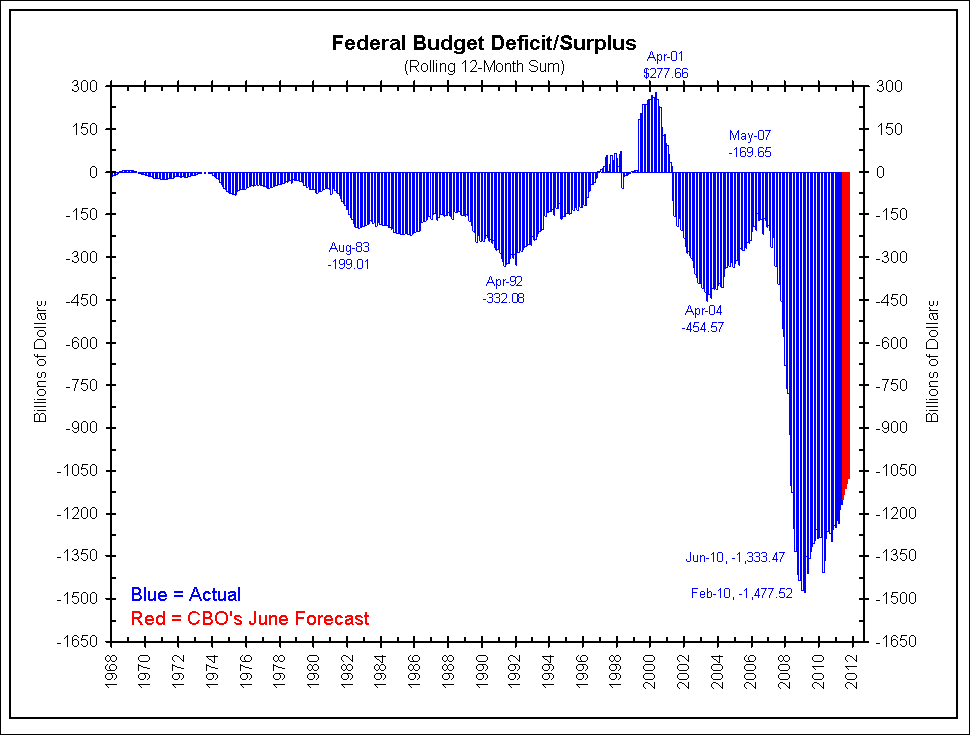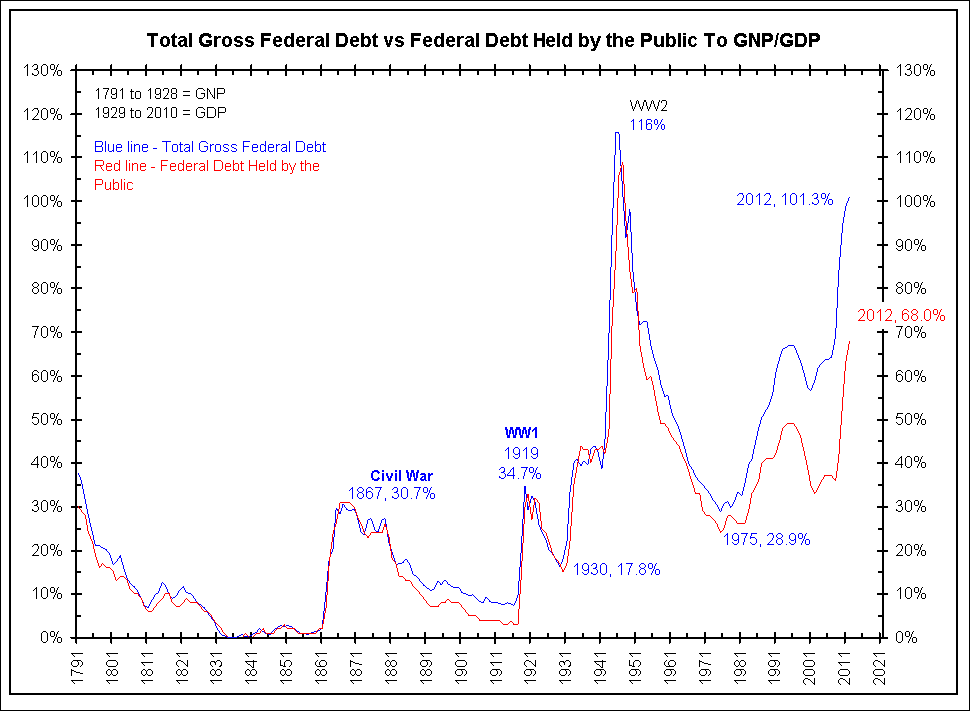Click to enlarge:
CNBC – US Could Be the Next Greece—in 2037: CBO Report
For all of the hemming and hawing about spending cuts in Washington, the Congressional Budget Office’s latest long-term budget forecast reflects two painful facts for Washington: How large the nation’s problems remain, and how the GOP’s 2010 surge into Washington has had only a limited impact in changing America’s fiscal trajectory. The annual report, released on Tuesday by Capitol Hill’s nonpartisan budget umpires, argues that if Congress’s current policies continue – meaning that the Bush tax cuts are renewed at year’s end and Medicare providers don’t face drastic reductions in payments, among other issues – federal debt held by the public will reach 93 percent of gross-domestic product (GDP) by the year 2022. That’s down about seven percentage points from CBO’s 2011 forecast, which saw the nation’s debt as a share of GDP rising to 100 percent by 2021. That’s thanks in large part to the Budget Control Act of last summer – also known as the debt-ceiling deal – where Congress achieved more than $2 trillion in savings over the next decade through a combination of spending cuts and discretionary spending caps.
AFP – Congressional study warns of dire US debt outlook
US debt is on track to grow to twice the size of the entire economy in the next 25 years, the non-partisan Congressional Budget Office reported Tuesday in its grim view of America’s fiscal future. The CBO said that under present policy, in which current tax rates are upheld and lawmakers do not curb entitlements, the portion of national debt held by the public would soar from 70 percent of GDP as forecast for the end of 2012 to 100 percent of GDP in just over a decade. “After that, the growing imbalance between revenues and spending, combined with spiraling interest payments, would swiftly push debt to higher and higher levels,” the CBO said in its 2012 Long-term Budget Outlook. “Debt as a share of GDP would exceed its historical peak of 109 percent by 2026, and it would approach 200 percent in 2037.”The campaign of Mitt Romney, the Republican challenging President Barack Obama for the White House in November’s election, said the dire data confirmed the administration was taking the country down a “path to fiscal ruin.”Democrats countered that it showed that revenue generation, and not just cuts to domestic spending, must be part of any broad plan to rein in debt.The economy is facing historic pressure in coming decades due to the aging of the US population: the demands of the large “baby-boom” generation — those born between the end of World War II and the early 1960s — will lead to a significant sustained increase in the share of people receiving benefits such as Social Security and Medicare.
Source: Bianco Research




What's been said:
Discussions found on the web: